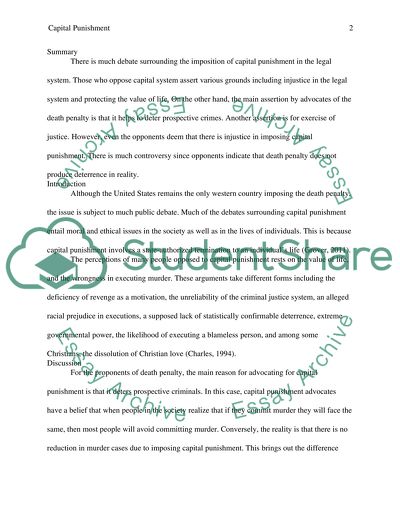Cite this document
(“Capital Punishment Research Paper Example | Topics and Well Written Essays - 2000 words”, n.d.)
Retrieved de https://studentshare.org/law/1390540-capital-punishment
Retrieved de https://studentshare.org/law/1390540-capital-punishment
(Capital Punishment Research Paper Example | Topics and Well Written Essays - 2000 Words)
https://studentshare.org/law/1390540-capital-punishment.
https://studentshare.org/law/1390540-capital-punishment.
“Capital Punishment Research Paper Example | Topics and Well Written Essays - 2000 Words”, n.d. https://studentshare.org/law/1390540-capital-punishment.


